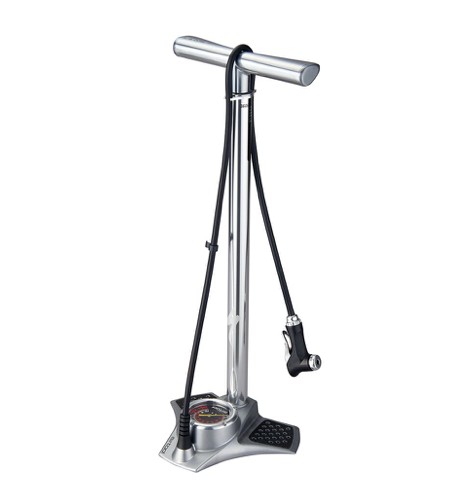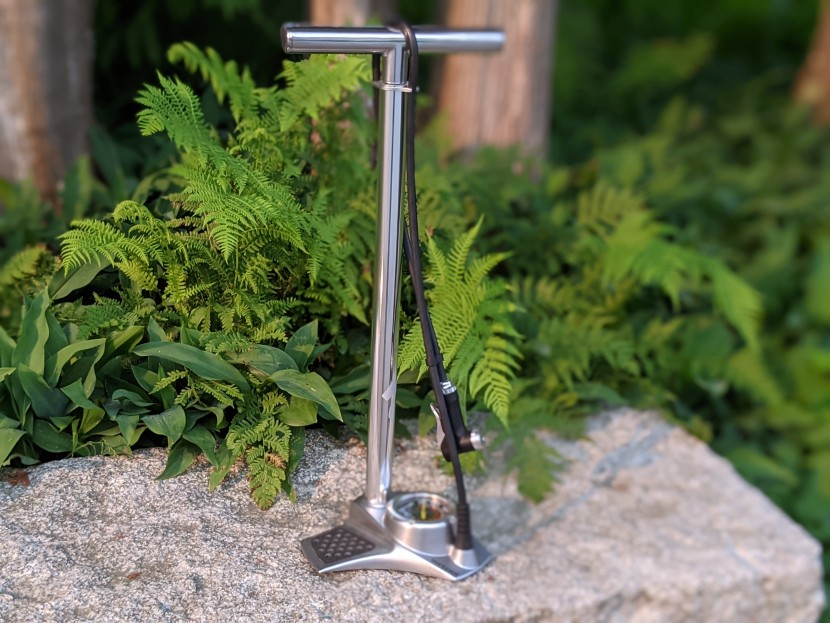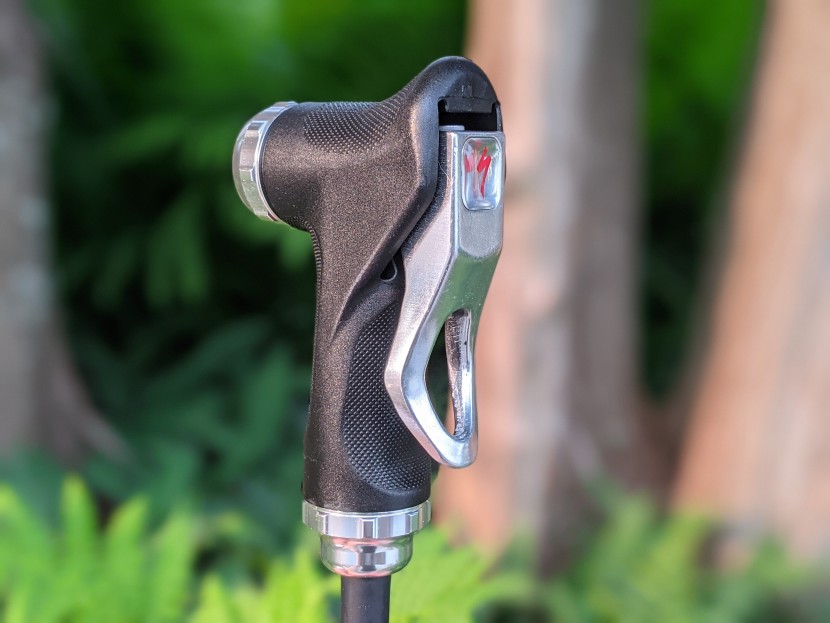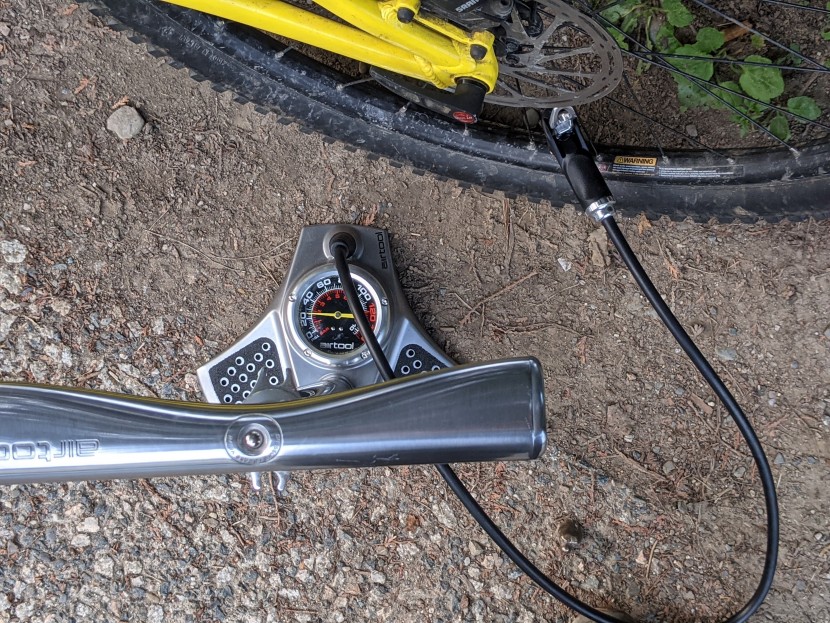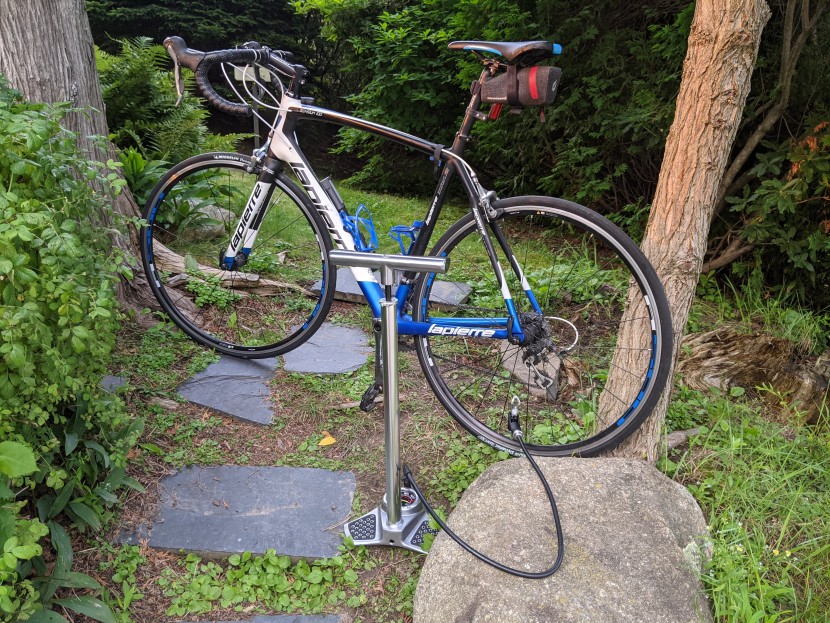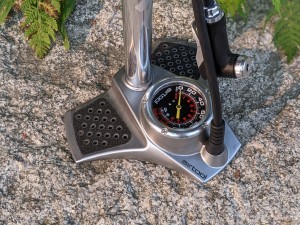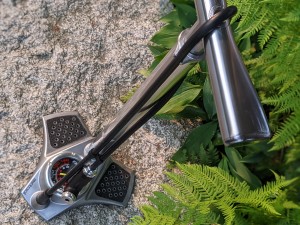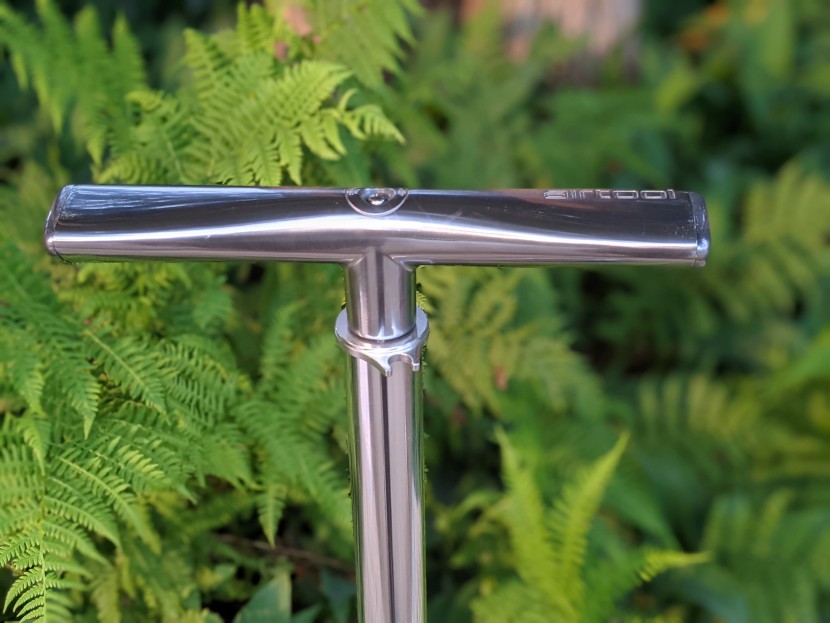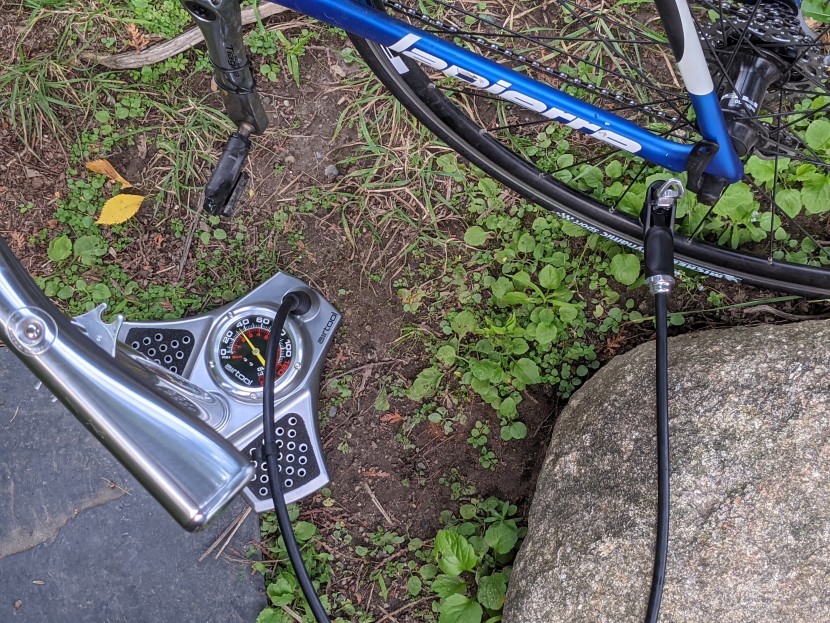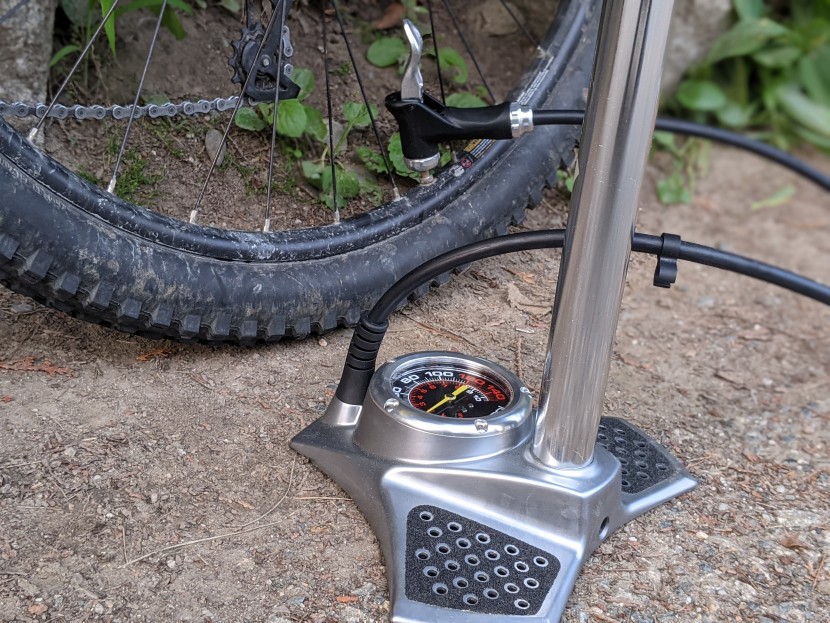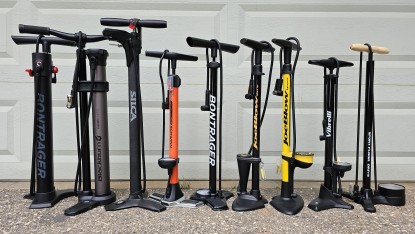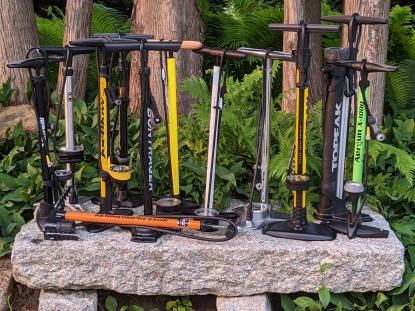Specialized Air Tool Pro Review
Our Verdict
Our Analysis and Test Results
A handful of pumps in this review offer similar, multifunctional nozzles, but the one on the Air Tool Pro works more smoothly and consistently than the competition. This isn't the most efficient pump in the test, and it can heat up in the sun, but we think its superior performance is worth it, and that this is the best pump for most folks. We also love the bleeder valve in the handle.
Ease of Attachment
The SwitchHitter II nozzle on this pump, as the name implies, switches seamlessly between Presta and Schrader valves. Just align the nozzle with whichever one you've got and press down. Once you feel a connection and a quick release of air, flip the handle on the nozzle up to lock it in place. Very little air is lost in the process. Similar nozzles often struggle to grip the valve stems of completely deflated tires. This one had no problem connecting with a valve that's partially sunken into the rim.
On the downside, the pump's head is large and can be a pain to manipulate between spokes. The locking lever can also snap back down with disconcerting force. Once we got used to it, though, we rarely smashed our fingers.
The hose connects to the pump on the baseplate just behind the gauge, on the opposite side of where you stand. It's attached to a rubber tower with scoring that makes it very flexible and easy to direct. It's also long, 45.5 inches, and pliable. We never had a problem getting this pump's nozzle where we wanted it to go.
Inflation
The pump action on the Air Tool Pro is smooth, and the shaft has a reasonable amount of volume, keeping you from sweating too much whether you're working with high-volume MTB rubber or high-pressure tires for the road. The broad base angles towards the user's body, making it easy to stabilize the pump without standing directly over it. This gives you more leverage and is much more comfortable.
The 10-inch aluminum handle feels cool to the touch in the shade or inside a shop. It can pick up heat from the sun, though. Consider this if you're a desert rider who brings your floor pump on the road. It can also feel slick if you've got sweat or grease on your hands. Otherwise, it's comfortable, with a nice flare at the edges that lets you keep your hands in a more open, relaxed position.
In our inflation tests, it took an average of 21 strokes to bring a mountain bike tire from 10 to 30 PSI, and 8.5 to take a road bike tire from 20 to 80 PSI. That's a great number for the road tire and an okay one for the MTB tire. Only a few pumps we tested are really optimized for high-volume fat tires. Bottom line, this pump doesn't make you work that much harder than the rest to get your tires filled.
Stability
The broad base plate, made of cast aluminum, has three braces, one on the back, where the gauge sits, and one on either side. The two side plates tilt towards the user, not enough to keep it from falling over in that direction, though. The Air Tool Pro is mostly stable, but for such a heavy pump (4.9 pounds), it's frustrating to find such instability in any direction. It's not a problem when you're using it, just when it's standing around in your garage, and you bump into it.
The hose on this pump is long. When you wrap it over the handle for storage, using the two clasps at the top of the shaft to hold it in place, the nozzle hangs down the entire length of the pump. Luckily, Specialized added a slidable clasp to the hose itself, so you can secure the nozzle instead of letting it just bang around.
Accuracy
This pump was one of the most accurate in our test and seemed to lose very little air when we detached the nozzle. That means that the number shown on the gauge is pretty much the number you end up within the tire.
We pumped a mountain bike tire to 30 PSI and a road tire from 40 to 80 PSI, checking each pressure point with a separate tire gauge. The pump nailed the lower two pressures (30 and 40 PSI) and was only below the higher pressure measurement by 2 PSI, likely because it's easier to lose a little air when you pull the nozzle off a more pressurized tire.
The bleeding gauge in the handle of the Air Tool is one of our favorite features, making it incredibly easy to hit exactly the number you want without ever moving your hands. Most pumps place a bleeder valve on the nozzle head. That means you have to bend over to release air and stand back up to add more in. The solution on this pump is so much better.
Gauge
Mounted on the pump's substantial base, the gauge on the Air Tool pro is about 2 inches off the ground and 2.75 inches across. The numbers, written out every 20 PSI, are large and easy to read. They're placed very close to the edge of the gauge, though, and are underneath glass — so the curve of the circle and glare can make them harder to read at times.
The base tick marks are small, with each one marking 2 PSI, and there's no marker to help you know whether or not you've hit your target pressure. Still, we never had a problem eyeing when the pump hit our mark. Bar pressure readings are another matter. They're written in red in an inner circle and are smaller and harder to read.
Since the pump's hose is stored by wrapping it up and over the handle, it tends to lean toward the shaft, even when you release it. That path takes it directly across the gauge face, which makes it harder to read. It's easy to actively redirect it, but this can be irritating.
Should You Buy the Specialized Air Tool Pro?
The Specialized Air Tool Pro won the day for its accuracy, inflation speeds (especially on high-pressure tires), and ease of use. We absolutely love the bleeder valve in the handle and being able to forget about which of our whips have a Schrader or Presta valve. It also seems sturdy and well-made with a gauge that is decently easy to read. As long as you can deal with its heft and price tag, we think you'll appreciate this pump's performance. Unfortunately, this pump isn't cheap. It's one of the more expensive options in the test. If you know exactly what pressure you want in your mountain and road bike tires and dream of adding and bleeding air until you're at the perfect pressure without ever leaving your pump's handle, this option is definitely one to consider. As an added bonus, it looks good too.
What Other Bike Pumps Should You Consider?
If you're looking to spend a little less, the Bontrager Charger provides good pumping abilities at a much more approachable price. Itssmart nozzle is a bit more finicky, but it still gets the job done for a fraction of the cost. If you need to seat the bead of tubeless tires at home, the Bontrager TLR Flash Charger is our recommendation. It works like a manual compressor to blast a large shot of air into your tires and it performs its duties as a regular floor pump quite well. It's a bit more expensive, but this style of pump is great for home mechanics and can help save frustration and trips to the bike shop over time.


